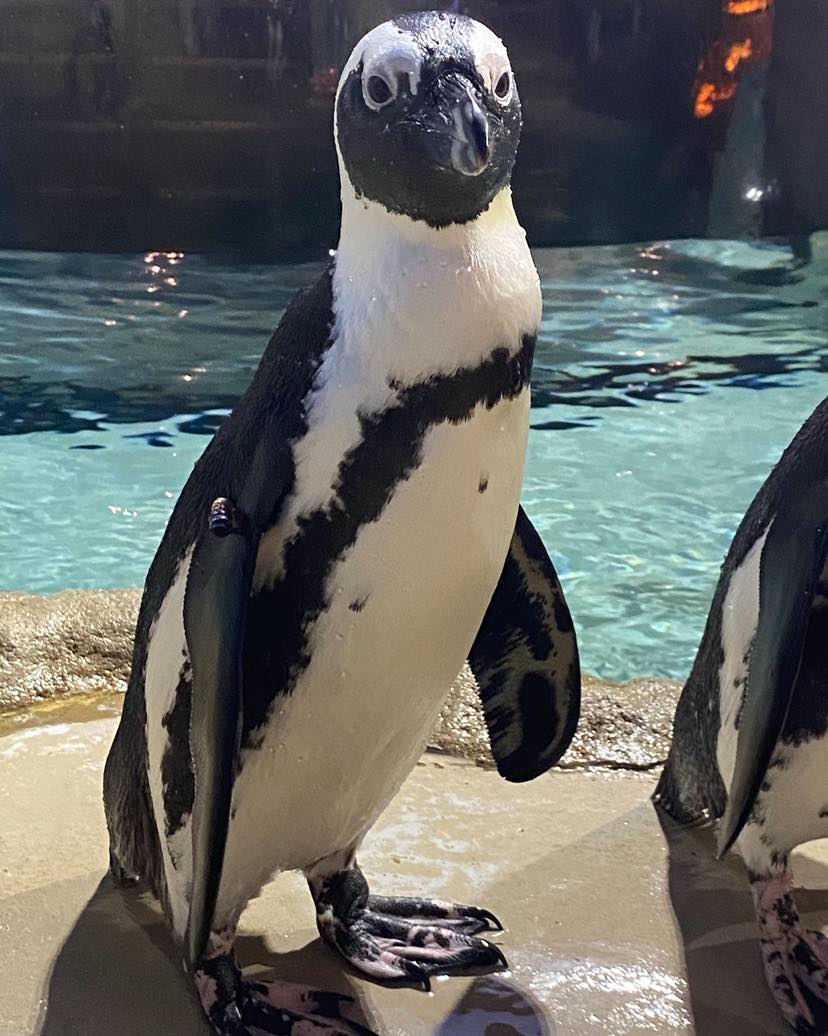– Discover the fascinating world of penguins, from their unique adaptations to harsh climates to their complex social behaviors.
– Uncover the secrets behind their distinctive tuxedo-like appearance and why it’s crucial for survival.
– Explore the various species of penguins and the different habitats they call home across the southern hemisphere.
– Learn about the challenges penguins face in the wild and the conservation efforts to protect these charming birds.
– Get insights on how penguin research has provided valuable information applicable to broader environmental and ecological studies.
—
There’s something undeniably charming about penguins. They captivate us with their wobbling walks and social antics, yet there’s so much more to these flightless birds than meets the eye. Standing ready to welcome you this Friday, Penguin Pointers promises an engaging experience that merges education with entertainment, crafting a vivid tableau of the life and times of penguins—and who knows, you might leave with a new favorite animal.
Did you know that penguins are supremely adapted to aquatic life? Though they might appear awkward on land, these birds are elegant and graceful swimmers. Their torpedo-shaped bodies reduce drag, allowing them to dive and weave through the water with incredible agility. Penguins spend a considerable portion of their lives at sea, and their wings have evolved into powerful flippers that propel them through the ocean currents in a manner that conjures images of underwater ballet.
Penguins’ characteristic black and white plumage isn’t merely a matter of avian fashion—it’s a sophisticated survival tool. Known as countershading, the dark backside absorbs heat and provides camouflage from predators above. At the same time, the white belly blends with the bright sea surface when viewed from below, confusing predators and prey alike. This natural cloaking device gives penguins an extra edge, both as hunters and as the hunted, in the never-ending dance of oceanic life.
Penguins are remarkably diverse, and during Penguin Pointers, you’ll become acquainted with the varying species—each with its quirks and habitats. From the towering Emperor Penguins, lords of the Antarctic ice, to the diminutive Little Blue Penguins, who burrow along coastal New Zealand and Australia, these birds have conquered habitats ranging from ice sheets to tropical isles. Each species has tailored its lifestyle to the nuances of its environment, a testament to the resilience and adaptability of penguin-kind.
What’s truly engaging is their complex social behavior; penguins are not solitary creatures. Colonies, known as rookeries, can range from a handful of birds to supercolonies numbering in the hundreds of thousands. Within these bustling communities, penguins form lasting bonds, often mating for life. Their vocalizations, a racket to an untrained ear, are vital to communications within the densely packed colonies. Parental care is strong among penguins, with both sexes sharing responsibilities for egg incubation and rearing chicks—an emblem of cooperation and dedication.
However, the penguin’s world is not without its dangers and hardships. Climate change, pollution, and overfishing threaten their well-being and habitat. Sea ice, which plays a critical role in the Antarctic ecosystem, is diminishing, affecting the availability of krill—a primary food source for numerous penguin species. Coastal developments disrupt nesting areas, and fishing nets inadvertently capture and drown thousands of penguins every year. Amid these challenges, conservation efforts shine as beacons of hope. Sanctuaries, protected marine areas, and global collaborations aim to secure a future for these birds, and education is at the forefront of these actions.
The research gathered from studying penguins reaches far beyond the immediate concern for their survival. These birds act as environmental sentinels, with their health and behavior providing clues about oceanic conditions and the impacts of climate variability. They’re also integral to nutrient cycling, with their guano enriching the marine environment—yes, even penguin poop plays a significant part in the health of our oceans!
As you plan to attend Penguin Pointers, prepare to be immersed in the world of these wondrous birds in a way that brings their story to life. You’ll emerge with a newfound appreciation for their ecological importance, the extraordinary measures taken to ensure their persistence, and perhaps even a sense of kinship with these resilient, feathered friends of the Southern Hemisphere.
In conclusion, penguins are far more than the endearing creatures popularized in media and zoos worldwide. They’re ambassadors of the Antarctic, champions of adaptation, and crucial players in our global ecosystem. Their continued existence hinges on our understanding and actions, and each of us holds the power to make a difference. Join us for an enlightening session at Penguin Pointers, where fascination meets the boundless quest for knowledge. Together, we’ll celebrate penguins not just as symbols of icy realms but as vital contributors to the richness and diversity of our planet.
*****
Source Description
🐧 Penguin Pointers!🐧
Love penguins? Of course, you do! Join us for our Penguin Pointers this Friday (2/23) from 5:30 to 6 pm! Learn about these flightless birds from one of our knowledgeable keepers and meet one of your penguins up close! Ages 5 and up. Pre-registration required. Click the link in our bio to register!

